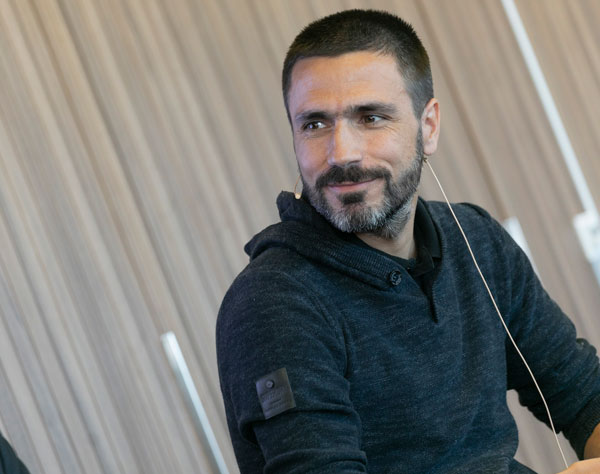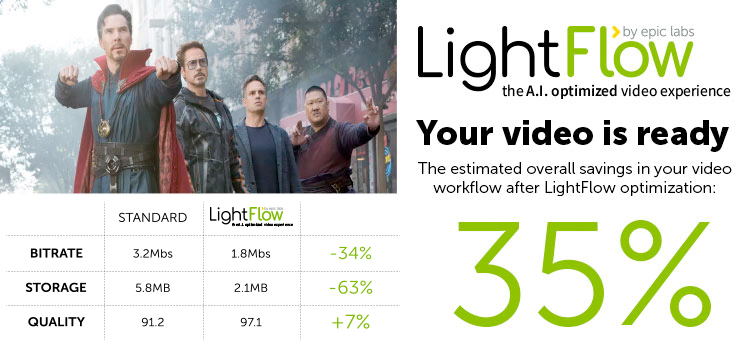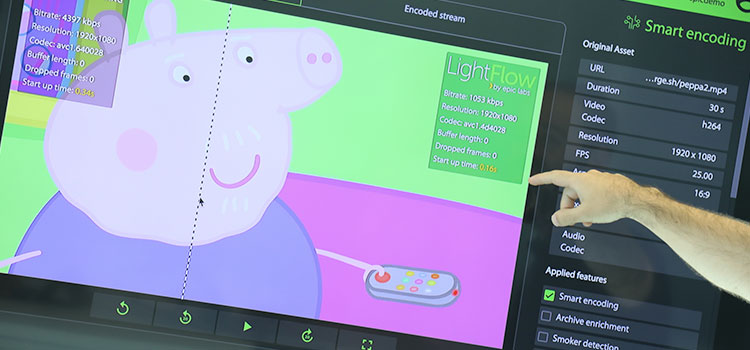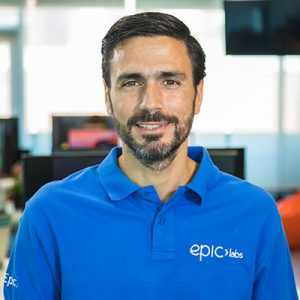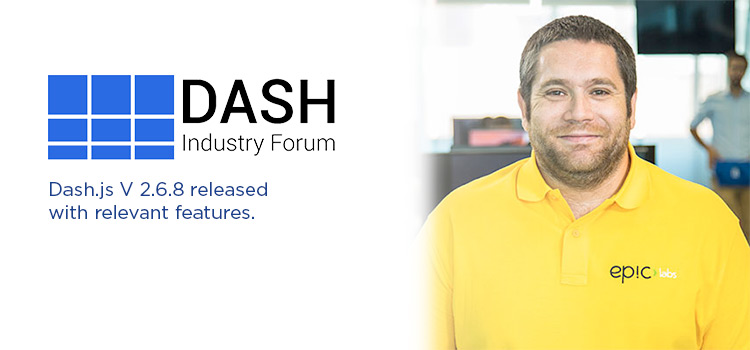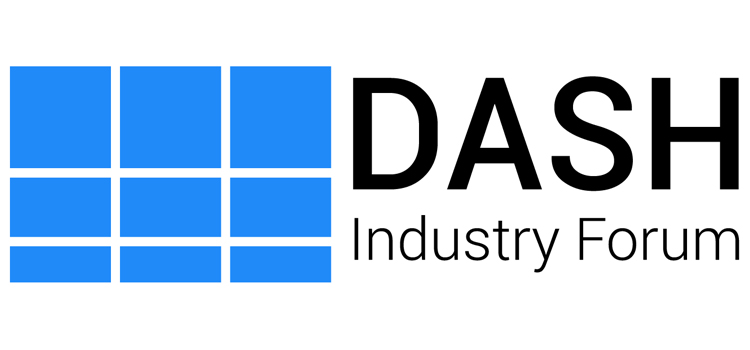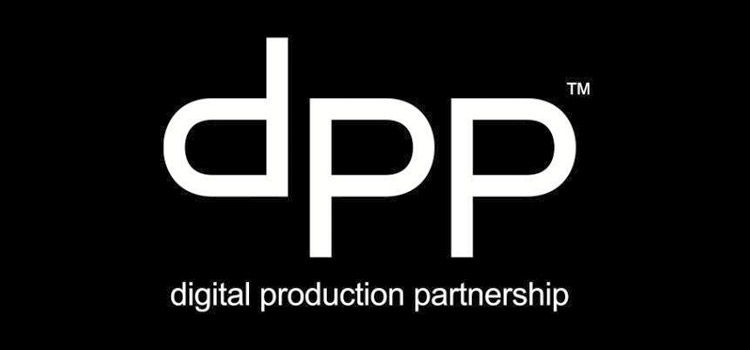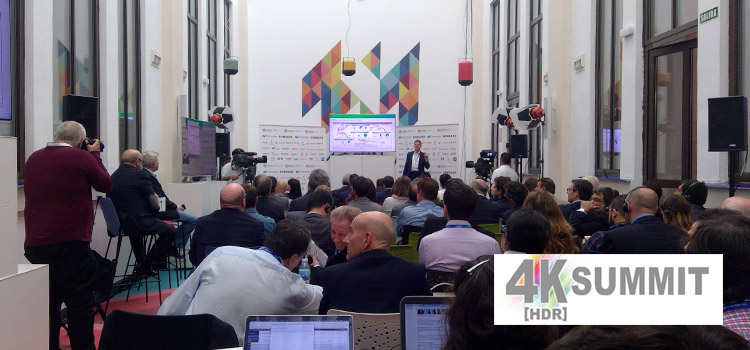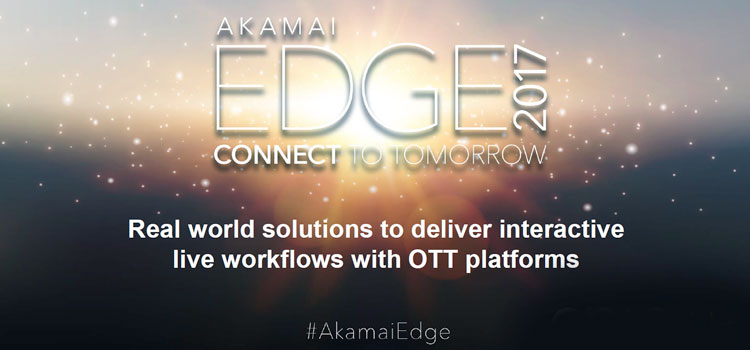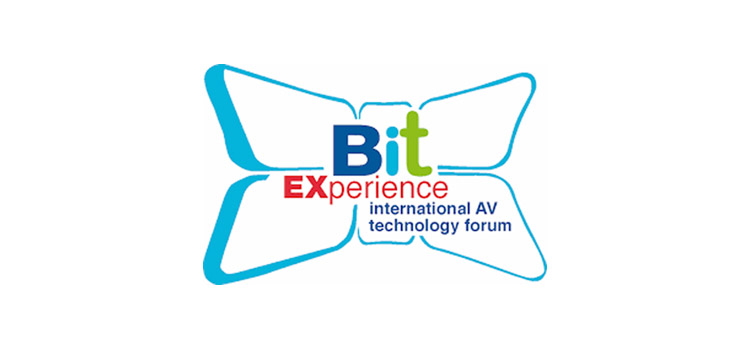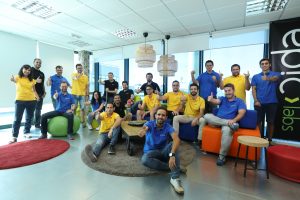Epic Labs participó en el III Foro EL ESPAÑOL Blockchain y Criptomonedas: Así cambiarán los modelos de negocio.
El pasado 18 de junio se celebró el III Foro El Español Blockchain y Criptomonedas: Así cambiarán los modelos de negocio. El evento contó con la presencia del CEO y Fundador de Epic Labs Alfonso Peletier que apuntó: “Podemos definir una comunidad como un grupo de personas y empresas que se agrupan por un bien común. Blockchain va a ayudar a definir la consecución de fines comunes de las comunidades del futuro”.
El evento, respaldado por eToro, Banco Sabadell, Ethereum Madrid, KPMG, Universidad CEU San Pablo e Innsomnia, contó como maestro de ceremonias con Arturo Criado, redactor jefe de la sección de Empresas y Medios de El Español.
La primera mesa abordó la visión general del mercado, así como las perspectivas futuras y en ella participaron Luis Olmedo de Cáceres, Senior Manager de Global Strategy de KPMG; Javier Molina, Presentor en España de eToro, Antonio Gonzalo, Cofundador del think-tank Ethereum Madrid; Javier Domínguez, del Nodo de programación de Blockchain España y Gabriel Montalto, Broker de Derivados Financieros.
Olmedo de Cáceres fue el encargado de romper el hielo de la mesa con una revisión del posicionamiento regulatorio actual. “En Europa, en 2017 decidimos que había llegado el momento de estudiar en serio Blockchain y sus aplicaciones. En España, para empezar, estamos presentes en todas las iniciativas de la Unión Europea. Además, la CNMV está mandado notas aclaratorias regularmente. Por el momento llevan dos: una advertencia y una guía para las ICOS. Luego estaría Suiza, que es el ejemplo a seguir. Su iniciativa Cripto Valley, en una zona cerca de Zurich, es una gran apuesta“.
Al ser preguntado por la iniciativa de Facebook, el manager de Global Strategy de KPMG explicó que, antes de salir, ya está teniendo efectos positivos el en resto de criptomonedas. “Venimos de un año muy bueno. Desde comienzo de año Bitcoin ha multiplicado su valor casi por tres. La salida de Libra va a ayudar a que esto aún mejore. La apuesta que han hecho es muy importante, han fichado a parte de su equipo de Paypal y Coinbase. Aunque lo de Facebook no sea una cripto como tal va a permitir que la gente use un nuevo medio de pago y eso va a ser muy beneficioso para el resto“.
Por su parte, Javier Molina comenzó su intervención incidiendo en que la iniciativa de Facebook no puede ser considerada una criptomoneda como tal. “Lo de Facebook no va a ser una criptomoneda porque no está descentralizada“.
El Presentor en España de eToro explicó que considera a este tipo de activos una oportunidad de inversión pero que tienen un nivel muy alto de riesgo. “Hay que estar en estos productos pero tienen que representar el 1% o el 2% en un portafolio. Las perspectivas son muy buenas. El problema no es el activo, es el uso que se da. Podríamos estar ante el oro digital“.
Por su parte, Antonio Gonzalo hizo hincapié en los importantes pasos que ha dado el sector recientemente. “En el pasado año vivimos un periodo muy bajista en términos de valor. En cambio, en lo que tiene que ver con la infraestructura ha sido un año muy bueno para el trabajo en escalabilidad“.
El cofundador de Ethereum Madrid también valoró el nacimiento de Libra muy positivamente. “Ahora, con la entrada de la red social en el sector, las perspectivas son buenísimas. El efecto red de Facebook va a venir muy bien para todo el ecosistema“.
Montalto resaltó que actualmente sólo una minoría de ciudadanos conocen y entienden el significado de Blockchain. “La gran mayoría de las personas siguen sin saber de qué hablamos. Cuando la gente entienda cripto al mismo nivel que las acciones de bolsa vamos a ver una revolución. En una década los chicos que hoy tienen 13 años van a estar pagando su Coca-Cola o su entrada de cine con criptomonedas en Madrid y en Pekín“.
Para concluir la mesa, este broker especializado en derivados financieros dio a conocer alguna actividad menos conocida en base a criptomonedas. “Ya hay empresas de compra de viviendas en Bitcoins. El dinero en efectivo como tal va a desaparecer. Se están retirando billetes de gran valor y se impide un pago en efectivo por encima de ciertas cantidades. No descarto que estaremos pagando muy pronto con visas basadas en cripto“.
Una visión del futuro
La segunda mesa se centró en intentar dar una visión de cómo se remodelarán los negocios gracias a estas nuevas iniciativas. En ella participaron Carlos Trevijano, Socio Responsable de Fintech y Pagos en KPMG España; Roger Olivet, Blockchain Director de Banco Sabadell; Francisco Estevan Vitores, CEO de Innsomnia; Ricardo J. Palomo, Catedrático de la Universidad CEU San Pablo; Jesús Pérez, Director de CryptoPlaza de Finnovating y Alfonso Peletier, CEO de Epic Labs.
Trevijano comenzó su intervención contestando a una pregunta del público que solicitaba una definición para Blockchain. “Es una base de datos descentralizada basada en una cadena de bloques. En Blockchain la propia red valída cada operación. Una de las innovaciones más interesantes que ha traído son los Smart-contracts, que permiten automatizar los eventos que rigen el contrato cuando se cumplen las condiciones“.
Respecto a las claves del futuro, el responsable de Fintech y Pagos en KPMG España, señaló que la principal dificultad que va a tener Blockchain son los incentivos de participación. “Los incentivos van a jugar un papel fundamental en la adopción de esta tecnología entre el gran público“.
En su intervención, Roger Olivet analizó los efectos futuros que va a tener la nueva iniciativa de Facebook. “La noticia de hoy es positiva en muchos aspectos. Va a dar acceso a este activo a mucha gente y va a permitir conocer el resto del ecosistema. Además, a las entidades financieras nos va a ayudar a ponernos las pilas. En este entorno, los bancos tenemos una ventaja: somos entidades confiables y tenemos que aprovecharlo. La colaboración va a ser muy importante. Esto no va de islas, va de archipiélagos y puentes“.
El responsable de Blockchain de Banco Sabadell tuvo la oportunidad de dar detalles sobre la iniciativa en la que participa su compañía. “Empresas de distintos sectores nos hemos puesto de acuerdo para identificar y acreditar a nuestros proveedores. Cuando una empresa colaboradora y quiere trabajar con una compañía como la nuestra pierde mucho tiempo. Ahora, con la iniciativa que hemos presentado hoy, si se valida una vez se valida para todos los componentes“.
Estevan Vitores aprovechó su intervención para aportar su propia definición de Blockchain. “Cuando se lo he intentado explicar a mi hijo, al final he llegado a la conclusión de que Blockchain es la tecnología de la verdad. Hay que poner a todo el mundo de acuerdo para que el sistema mienta. Es una gran oportunidad para hacer las cosas distintas. Blockchain es mucho más que Bitcoin. Yo, si fuera notario, estaría preocupado e intentando subirme a esta tecnología“.
El CEO de Innsomnia quiso poner en valor el papel de los emprendedores. “Estamos ante un momento apasionante. Queda aún mucha fluctuación y tenemos que seguir aprendiendo. Los emprendedores van a jugar un papel fundamental en el desarrollo de esta industria“.
Entre las distintas visiones profesionales, Ricardo J. Palomo aporto la experiencia que se está teniendo de las instituciones educativas del fenómeno Blockchain. “Esta revolución está causando gran fascinación entre los alumnos. Estas tecnologías y la inteligencia artificial están generando mucha ilusión por los cambios. Estamos en un cambio de paradigma en el que vamos a estar decidiendo si se usa o si no se usa esta tecnología. La iniciativa de Facebook va a popularizar aún más todo lo referente con esta nueva industria“.
En cuanto a las oportunidades futuras, el catedrático de Universidad CEU San Pablo apostó por que veremos cada vez más iniciativas que aporten valor usando el Blockchain o las criptomonedas. “Estamos pasando de una fase teórica a una en la que ya empezamos a ver casos de uso. Cada vez más empresas van a apoyarse en esta tecnología usándola para más soluciones. Esto requiere tiempo, formación, receptividad e ilusión. El mundo necesita cada cierto tiempo novedades y esta es una muy grande“.
Ante una mayoría de opiniones que ensalzaron más las oportunidades de Blockchain, Jesús Pérez quiso romper una lanza en favor de las criptomonedas. “Blockchain es una base de datos con una serie de atributos. En cambio, Bitcoin está generando mucho más valor ya. Cuando se abordan estrategias sólo con Blockchain se pierden oportunidades de negocio. Venezuela transacciona más Bitcoins que Dólares. Ya hay empresas con 600 millones de beneficio. Estamos hablando de un negocio real“.
Alfonso Peletier, puso el acento en el potencial colaborativo de esta tecnología. “Podemos definir una comunidad como un grupo de personas y empresas que se agrupan por un bien común. Blockchain va a ayudar a definir la consecución de fines comunes de las comunidades del futuro. Blockchain ha llegado para quedarse. Con el tiempo la tecnología va a evolucionar porque ahora mismo es muy inmadura. No tenemos el sistema operativo terminado totalmente y queremos poner apps encima“.
El CEO de Epic Labs concluyó destacando lo excepcional del momento que estamos viviendo. “Esta tecnología aún requiere tiempo e inversión. La inversión ha ido a un ritmo muy bueno pero estamos en un momento de inmadurez. Tenemos entre las manos algo especial. Con Internet vimos la revolución de la información, ahora veremos la revolución de la confianza“.
Una confianza que todos los participantes en el foro mostraron de cara a un futuro en el que Blockchain y las criptomonedas jugarán un papel central de la nueva economía.
El evento contó con la colaboración de BLOCKCHAIN España.
Fuente: El Español
Fotografías: Jesús Umbría – EL ESPAÑOL
